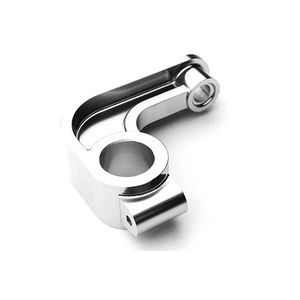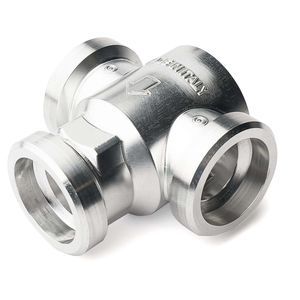
PVC machining automotiveCNCISO






Add to favorites
Compare this product
Characteristics
- Treated material
- PVC
- Applications
- automotive
- Other characteristics
- CNC
- Certifications
- ISO
Description
USE CNC-MACHINED PVC PARTS TO ACHIEVE THE FULL POTENTIAL OF YOUR PROJECTS. THEY WILL BE DURABLE, COST-EFFECTIVE AND MORE CORROSION-RESISTANT PARTS THAN OTHER MATERIALS.
PROS
Self-extinguishing UL94 V0
Rigid and with good mechanical properties
Easy to machine and weld
Excellent electrical insulation
CONS
Limited ductility and resilience
Not suitable for food contact
The maximum operating temperature is 60°C
MAIN FEATURES
Process: CNC Machining
Tolerance: ISO 2768-1 medium (m) class. Info
Max size: 500x500x50mm; 20x20x2in
Lead time: <3 days
PVC (polyvinyl chloride) is a versatile and reliable material, ideal for many sectors .
Thanks to its chemical stability and flame-retardant properties, this material is very durable and suitable for a variety of applications. PVC also has good mechanical properties and rigid behaviour, making it perfect for milling and welding.
PVC parts are known for their superior durability, cost-effectiveness and corrosion resistance. This makes them perfect for use in a wide range of industries and applications, from automotive and aerospace to medical and electronics. In addition, CNC-machined PVC parts are 100% full and long-lasting, providing high performance for the entire period of application and use.
The cost-effectiveness of CNC-machined PVC parts is a big advantage. They can be produced quickly and efficiently and, in most cases, are less expensive than traditional metal parts. This makes them perfect for applications where cost is a decisive factor.
Catalogs
No catalogs are available for this product.
See all of Weerg‘s catalogsRelated Searches
- Machining service
- Milling machining
- Metal milling machining
- CNC milling machining
- ISO machining
- Automotive milling machining
- Medical milling machining
- Industrial milling machining
- Stainless steel milling machining
- Plastic milling machining
- Steel milling machining
- Machining for the aerospace industry
- Aluminum milling machining
- Electronic milling machining
- Copper milling machining
- Machining for the construction industry
- Machining for the maritime sector
- Milling machining for the food industry
- PEEK machining
- PVC machining
*Prices are pre-tax. They exclude delivery charges and customs duties and do not include additional charges for installation or activation options. Prices are indicative only and may vary by country, with changes to the cost of raw materials and exchange rates.






















